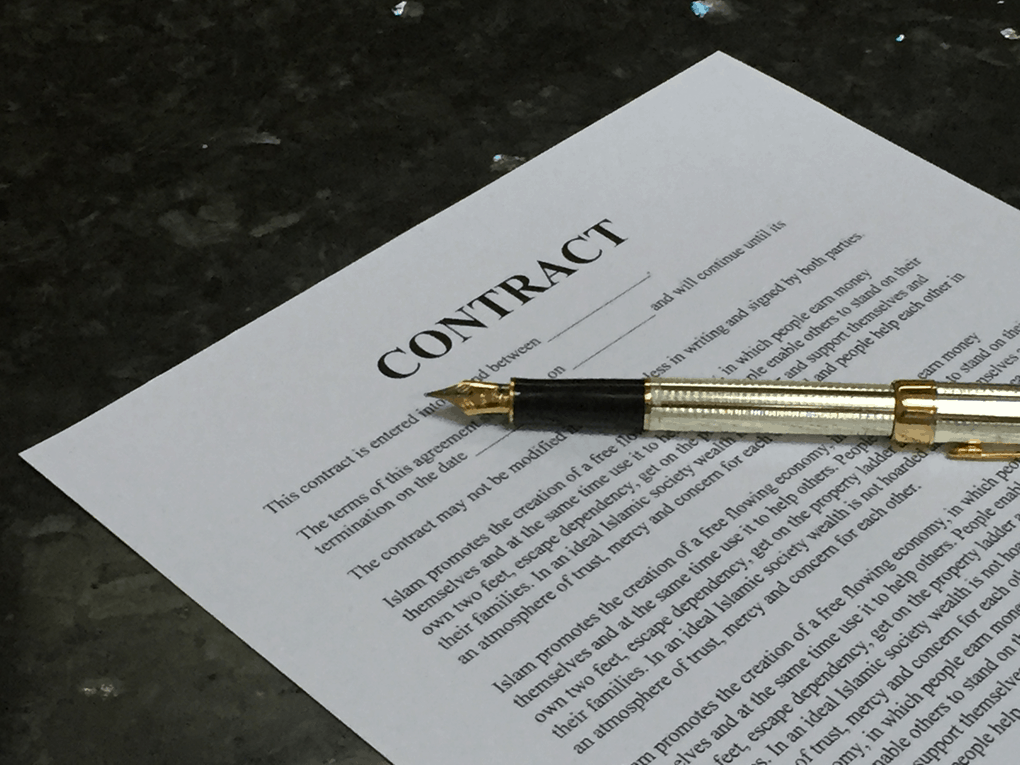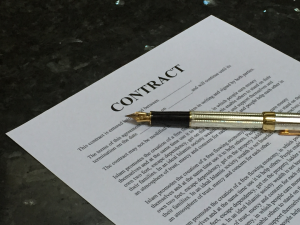Debts and Contracts in Islam

Debts – The Nitty Gritty
How is it is relevant to us today?
Why did Allah Almighty reveal the longest ayah of the Qur’an about debt? Simply, money concerns us all. All our dealings have financial repercussions.
Ayat ul dain (2:282), the longest ayah of the longest surah of the Qur’an relates to debts and contracts.
‘Dain’ means debt, difficulty or deferred payment for a sale.
The Big society – making lending practical and bring back trust
Money is no joke. People cut off family ties, kill each other and fight wars over it.
So it is important to regulate and legislate people’s financial rights and protect their wealth. Hence Allah Almighty has given us an ‘ayatulahkam’ (verse of ruling) for these matters.
Allah Almighty is promoting lending rather than hoarding, but knows our psychology and that our fear when lending is that we will not get our money back. So He is guiding us away from an atmosphere of mistrust, grudges and exploitation in our transactions towards a new framework of giving, and He has gone into great detail in how to apply this practically.
This covers lending as well as deferred sales, as there are many situations where advance payment is made such as in business, buying a car, off plan property, or ordering goods.
Allah Almighty is creating a new business model in which all parties are protected and feel secure.
‘O you who believe, when you transact a debt payable at a specified time, put it in writing, and let a scribe write it between you with fairness. A scribe should not refuse to write as Allah has educated him. He, therefore, should write. The one who owes something should get it written, but he must fear Allah, his Lord, and he should not omit anything from it. If the one who owes is feeble-minded or weak or cannot dictate himself, then his guardian should dictate with fairness. Have two witnesses from among your men, and if two men are not there, then one man and two women from those witnesses whom you like, so that if one of the two women errs, the other woman may remind her. The witnesses should not refuse when summoned. And do not be weary of writing it down, along with its due date, no matter whether the debt is small or large. That is more equitable in Allah’s sight, and more supportive as evidence, and more likely to make you free of doubt. However, if it is a spot transaction you are effecting between yourselves, there is no sin on you, should you not write it. Have witnesses when you transact a sale. Neither a scribe should be made to suffer, nor a witness. If you do (something harmful to them), it is certainly a sin on your part, and fear Allah. Allah educates you, and Allah is All-Knowing in respect of everything.’ (2:282)
The importance of documenting debt
The first step is documenting debt – having a clear record of the transaction so there is no ambiguity or misunderstanding.
It is not a reflection on whether one is trustworthy or not, but diminishes the possibility of dispute later. It should be common practice, and no one should feel insulted or intimidated as it protects both parties.
We don’t know what could happen in the future and over time matters can become neglected and forgotten. In the event that the lender or debtor dies, there is clear proof of who owed what to whom.
The shariah has five aims (maqasidul shariah), which are the preservation of our basic rights. These are the right to faith, life, wealth, honour/lineage and intellect. If any of these rights are violated Allah Almighty has specified the punishments that should be imposed.
Are we sinful if we do not write a debt down in a contract?
It is not compulsory but highly recommended that debt should be noted down. This means we are not sinful if we don’t do it. However, even though it is not an obligation, we should take this guidance into our practical life. This ayah is talking to us and we are being personally entrusted with carrying out Allah Almighty’s command. He specifically calls on as ‘ya ayyuhal amanu’ (oh you who believe) and our reply should be ‘labaik Allah, I am at your service,’ just as Ibrahim (peace be on him)
When his Lord said to him:
“Submit!” He said, “I have already submitted myself to the Lord of all the worlds.” (2:131)
Do I need to record every debt?
While it is not always practical or reasonable to record every single transaction, we should endeavour to contemporaneously record all other debts. We are not expected to document spot sales and Allah Almighty desires ease for us and not hardship. It is for our own benefit, and having witnesses to the contract reduces the likelihood of fraud.
How to record a debt
Debt should not be open ended – it should have a fixed period.
The borrower should propose the terms of the contract. He knows his limitations and when he can realistically pay back his debt. Then it is negotiable between him and the lender.
The borrower should not take unfair advantage of the lender and not overburden himself with difficult terms.
In instances where the debtor is incapable of dictating the terms of the contract, whether he is mentally incapable, underage or unwell, etc. his guardian should step in with honesty and fairness.
Who should write the contract?
Allah Almighty says it should be written down by a just scribe, a Katib ‘adal an ‘adala, an impartial, honest person of integrity and immaculate character. It should not be someone with a bad reputation or one who commits open sins. In the past this included actors, people who ate in the street or wore short sleeves! Nowadays it would exclude a large number of politicians.
The necessity for this role during the time of the Islamic civilisation introduced the profession of the notary public to the world, and it is a part of civil and common law worldwide.
The contract is meant to preserve and protect the rights of both lender and borrower so should be transparent and clear. However, documents written by lawyers these days are barely fathomable to lay people, as are the lengthy terms and conditions we are continually asked to sign.
When asked, the scribe should not refuse. It is about preserving people’s rights and belongings.
The document should then be witnessed. The witnesses need to know what they are signing, as it is pointless if they have no idea what is in the document and they are sinful if they witnessed a haram contract.
How many witnesses?
Two male witnesses are the minimum, more can be added, for example in nikkah contracts when relatives may feel upset if they are not included.
These should be two men ‘from among you’, which suggests that the witnesses must be Muslim. (There is a difference of opinion in the Hanafi madhab about this). Unless the case is involving non-Muslims in which case their own testimony can be taken.
If the contract is financial, the witness should not be a relative. In other cases, such as a nikkah contract, relatives can sign.
The witness can also be a woman, and if the contract is financial, she should have another woman to back her up. In other contracts, one woman’s testimony is sufficient.
A matter of trust
The word for witness is shahid, the meaning of the word itself suggests a public and clear account of the truth. Therefore the witness is duty bound not to conceal his testimony. This is what he is entrusted with and it is his obligation to disclose it if necessary.
Therefore a witness should not refuse to testify. It is sinful, especially if injustice occurred through his withholding testimony.
On the other hand, obeying Allah Almighty’s command by upholding the truth is worthy of immense reward. One of the people who are considered successful and inherit paradise forever in surah Muminoon is the one who fulfils his trust and keeps his pledges.
What if I am travelling and there is no one to write down the debt/transaction?
Allah Almighty permits us to give rahn or a deposit, which could be the equivalent to or more than the value of the debt. If the debt is not repaid, the lender can sell the security deposit and refund any excess.
Allah Almighty is witness over our all plans, our ummah and all previous nations. He trains us and gives us incentives for promoting mercy, ease, transparency and trust in our dealings with each other and promoting best practice in our personal and business arrangements in a practical way.
Recommended Posts

Lessons in victory from Surat Al Ahzab
May 12, 2021

Defend Palestine. Lessons from Surat Al Ahzab
May 11, 2021


